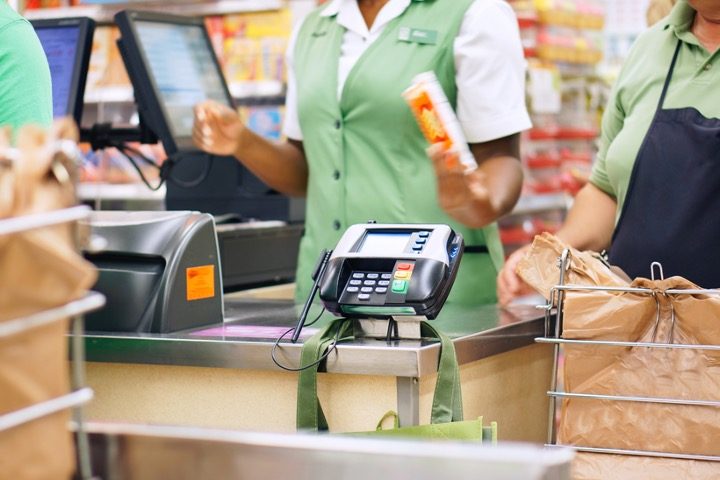
A bad analyst observes only what can be seen; a good analyst observes what can be seen, and what must be foreseen. If New Jersey’s leaders had been mindful of this twist on a famous Frédéric Bastiat line, perhaps they wouldn’t have banned “single-use” plastic bags some years ago. Why?
Because the prohibition has caused plastic use for bags to increase almost three-fold.
Per Fox News:
“Following New Jersey’s ban of single-use bags, the shift from plastic film to alternative bags resulted in a nearly 3x increase in plastic consumption for bags,” Freedonia Custom Research (FCR), a business research division for MarketResearch.com, reported in a study published this month.
… The ban took effect in May 2022, forbidding larger retail, grocery and food service stores from providing single-use plastic bags to customers. Instead, shoppers may purchase reusable bags made of woven and non-woven polypropylene plastic, or can bring their previously-purchased reusable bags to the store.
It didn’t take long, however, until shoppers started airing their grievances to local media that the reusable bags were stacking up in their homes due to repeatedly purchasing reusable bags at the grocery store, or due to home grocery delivery services using new reusable bags each drop-off.
“I keep them in the basement,” one New Jersey mom told NJ Advance Media in 2022. “I have another bag by the door in case I go out to the farmer’s market. Most of them are brand new, even have the tag on them. I use them one time but don’t throw them out.”
Many people do discard them, however. Consequently, while New Jerseyans used 53 million pounds of plastic yearly pre-ban, the figure is now 151 million pounds, FCR researchers inform.
The issue is that the “reusable” bags comprise 15 times as much plastic as the “single-use” bags, yet they’re not used 15 times as much.
In fact, reports Fox, “most New Jerseyans only reuse the bags two to three times before they’re discarded.”
There’s also an unmentioned factor here. I placed “single-use” in quotation marks earlier because many people (including me) would use “disposable” supermarket grocery bags for multiple purposes; carrying items, for instance, or, quite commonly, as garbage bags/trash pail liners. Yet with my state (New York) also clamping down on plastic supermarket bags’ provision, I’ve now expended the ones I’d accumulated.
The upshot: I may have to buy plastic garbage bags/trash pail liners. So am I using less plastic — or just being forced to spend more money?
This brings us to why New Jersey’s “single-use” bag ban may not be eliminated: It turns out that reusable bags are big business, with a retailer able to earn $200,000 yearly from them at just one location.
Interestingly, I just wrote about this phenomenon occurring after a number of British pubs and restaurants, at the behest of temperance-movement types, stopped serving large glasses of wine. The establishments did sell less alcohol — but made the same profit.
“That is the nanny state for you in a nutshell,” too, remarked Telegraph writer Ross Clark. “It is an unholy alliance between idealists and graspers.”
The lesson is that idealism and wisdom’s lack are a dangerous combination. For example, regulations intended to save water are also designed to, as N.J.’s Democratic Governor Phil Murphy put it when touting the bag ban, “strengthen our environment for future generations.” But consider a story:
Finding myself having to replace my toilet’s flushometer last year, I got into a brief conversation on the subject with a neighboring building’s superintendent and mentioned how low-flow flushometers are often installed today. He casually stated that his building stopped doing so. Why?
They found that residents would just “flush twice” (to achieve the same effect), the super said.
Another example was a 2023 Department of Energy proposal to limit new dishwashers — which are already restricted to five gallons per cycle (GPC) and must use 3.5 GPC or less to get an Energy Star rating — to 3.2 GPC. The problem?
As Senator John Kennedy (R-La.) pointed out last June, if reducing per-cycle water usage causes inferior cleaning outcomes, people may run the dishwasher again and use close to twice as much water as before. What’s more, some people may at times resort to hand washing dishes, which can use up to 27 gallons per “load.”
This brings us back to the Bastiat observation. Too often regulations are considered in only a one-dimensional manner, merely under the light of “what can be seen.” This ignores that these situations aren’t static, but fluid: A regulation may have secondary effects that cause people to alter their behavior.
As for plastic, its presence in our oceans is a problem, one I wrote about 20 years ago already. But a few facts:
- Most ocean-present plastic waste originates with just five Asian nations (China contributes approximately 28 percent).
- Approximately 46 percent of the ocean-present plastic waste comprises discarded fishing nets.
- Ninety-five percent of plastic we believe is being recycled isn’t actually recycled.
- Plastic thrown into the garbage never makes it into waterways; it ends up in landfills.
In reality, aside from wasting plastic, plastic-bag bans likely do little other than make value-signaling people feel better and certain retailers money. What will actually improve the environment is technological innovation. An example may be new plant-based bioplastic that “feels like plastic, looks like plastic, and performs like plastic, with the same bend, flex and strength,” wrote business and industry portal The OGM last September — but that safely and non-toxically breaks down in months in a normal composting environment.
Of course, though, such solutions do have a major downside: They don’t provide the power rush of a heavy-handed nanny-state approach.
Shop For Night Vision | See more…
Shop For Survival Gear | See more…
-
Sale!

Quick Slow Release Paramedic Survival Emergency Tourniquet Buckle
Original price was: $14.99.$7.99Current price is: $7.99. Add to cart -
Sale!

Mesh Shooting Hunting Vest with Multi Pockets
Original price was: $59.99.$39.99Current price is: $39.99. Add to cart -
Sale!

Portable Mini Water Filter Straw Survival Water Purifier
Original price was: $29.99.$14.99Current price is: $14.99. Add to cart


















































